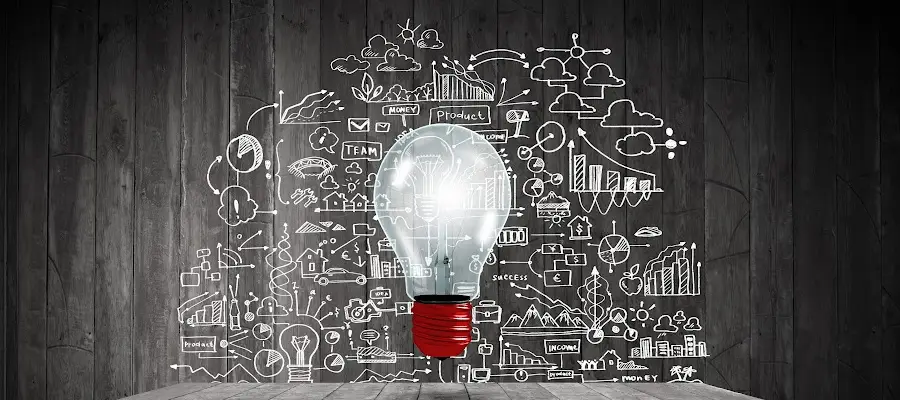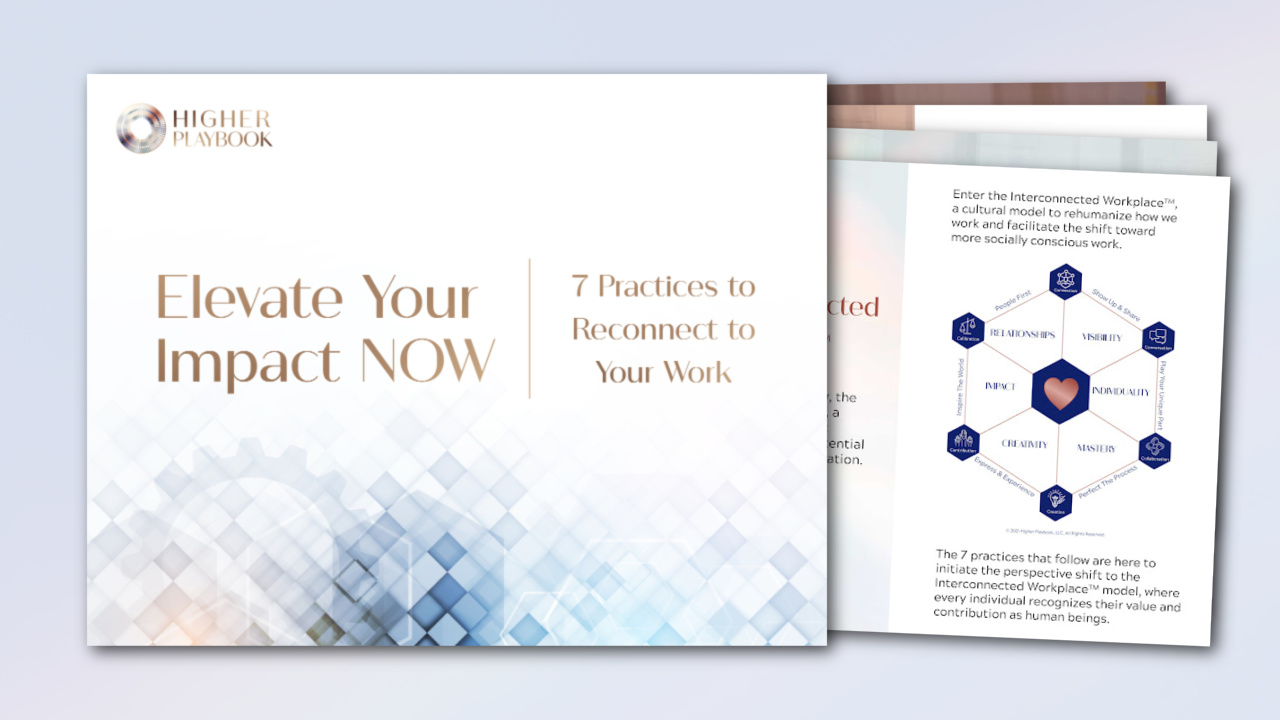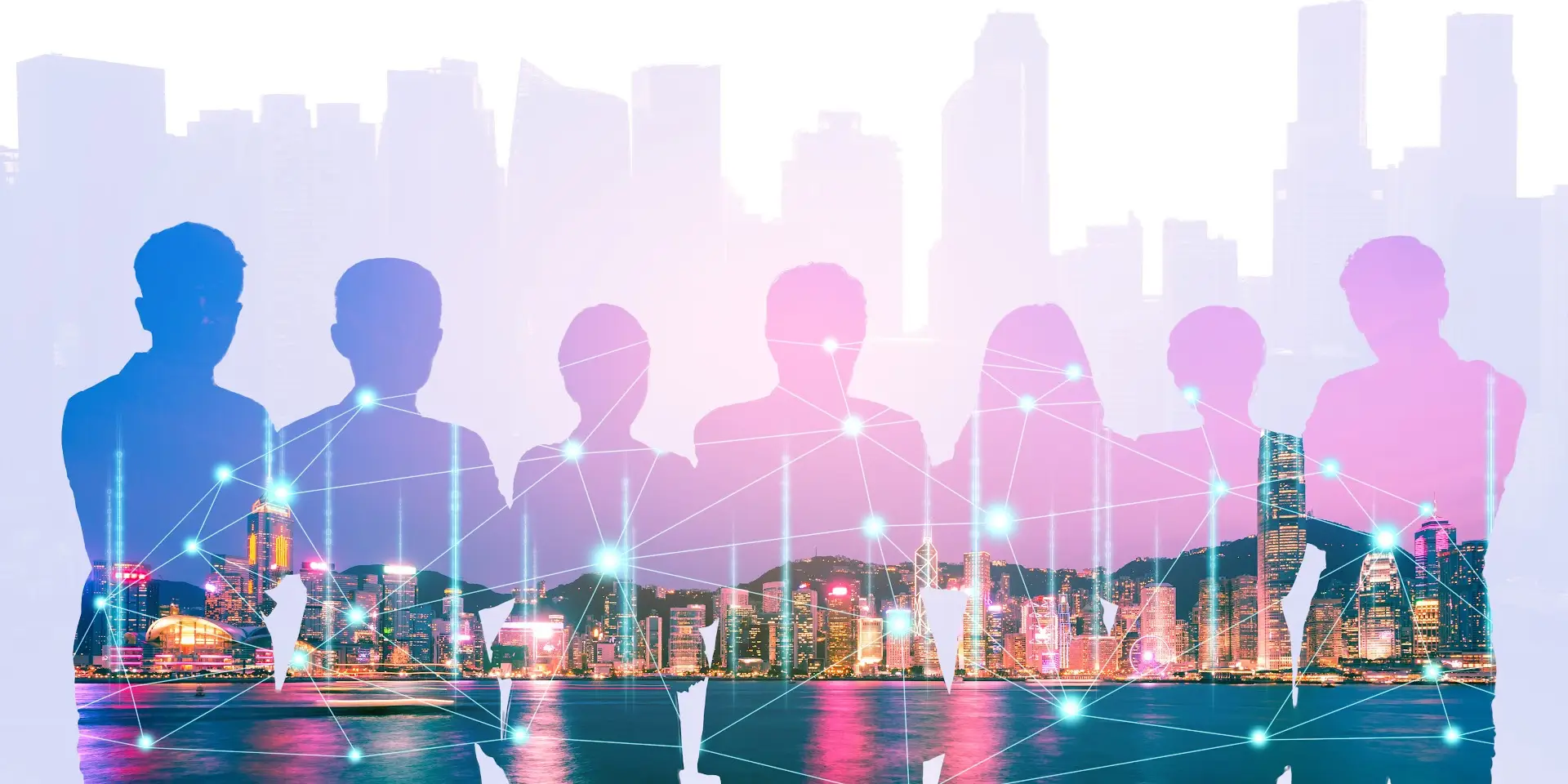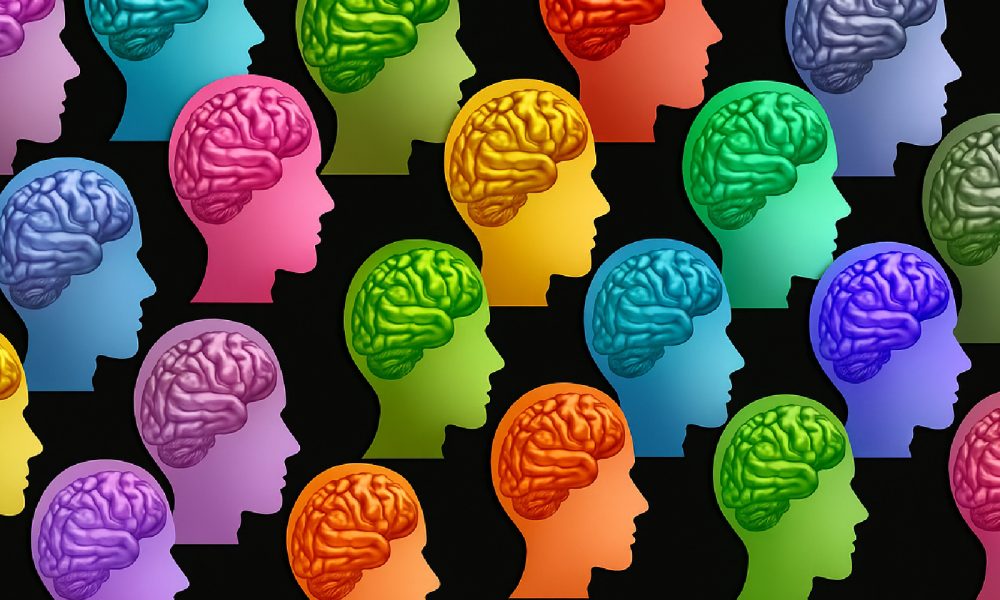This article explores 6 trends shaping the social evolution of work, and offers guiding questions to position yourself for success within the current and emergent business landscape.
As modern businesses experience the impact of technological advancements, societal pressures, and environmental shifts, there is a universal need across stakeholders to evolve with the emerging workforce trends.
Ready or not: A social evolution of our workforce is underway, prompting a reconfiguration of our roles and workplace structures.
Even if change has yet to impact your profession or industry, it’s a great time to think ahead and prepare for the future.
What Trends Are Shaping The Social Evolution of Work?
Whether you’re a business leader, an entrepreneur, an employee, or reinventing your place within the workforce, it’s time to consider how these 6 trends will impact your career, both now and moving into the future.
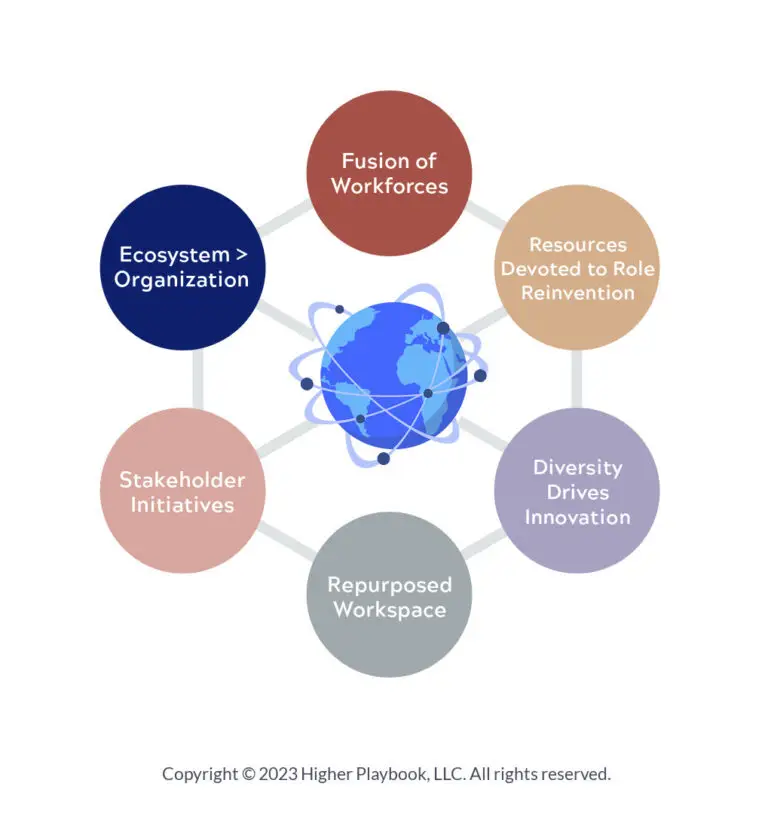
1. Ecosystem > Organization
Traditional organizational structures are dissolving, giving rise to a more expansive outlook of the stakeholder roles within a broader ecosystem.
Business leaders are faced with the task of renovating their operations to foster stakeholder engagement and interconnectivity.
To evolve with this trend, you can consider your business’ purpose within the context of the Sustainable Development Goals (SDGs), and how your role aligns with the broader impact you’re here to make.
Key Questions:
- Which Sustainable Development Goals (SDGs) inspire you?
- How can you channel your time, energy, and talents to contribute to society?
- What communities and causes align with your aspirations?
2. Fusion of Workforces
The line between corporate and gig economies are blurring due to remote work and rising professional autonomy. You can see this fusion in various ways.
Companies are embracing external experts to serve key functions, while corporate leaders are embracing entrepreneurship.
This fusion of corporate and gig economies creates a collective network, fueled by the talent-value currency, where exchanges are based on value creation and value-based consumption.
Key Questions:
- What talents and services do you wish to bring to this blended marketplace?
- What values back your purchasing decisions?
- What do the brands you buy from stand for?

3. Resources Devoted to Role Reinvention
As AI technology reshapes job roles, priorities like continuous learning and up-skilling continue to grow in importance. Individuals can seize the moment as an opportunity to reinvent themselves.
Reinvention starts with considering how you can personalize a career path that honors your skills, interests, and aspirations.
Key Questions:
- Envision your current role a decade from now. How has it evolved?
- What skills will you have then that you can start developing today?
- What value does your role and these skills hold in the marketplace?
4. Diversity Drives Innovation
Inclusive and equitable workplaces are possible when companies offer diversified educational methods and learning pathways, where all professionals have growth opportunities and access to development resources.
Touch-points for social learning, peer coaching, mentorship within contexts like special projects and impact initiatives empower social innovation.
Key Questions:
- Which educational touch-points will fuel your growth?
- How can you gain access to these experiences or resources?
- In what ways would it benefit you to lean into your network?

5. Repurposed Workspace
Amidst hybrid and remote work trends, physical spaces are being repurposed into strategic ‘destination workspaces’ that enable off-site experience on-site.
Destination workspaces foster collaboration, innovation, and meaningful interactions through engagement, brainstorming, and co-creation.
Key Questions:
- What kind of work environment do you envision for yourself?
- Where do you wish to travel to for work?
- What unique experiences do you desire when/if you return to the office?
6. Stakeholder Initiatives
The scope of workplace communities has expanded to include not only employees; they now also encompass consumers and society.
Brands must focus on how to drive community initiatives that align with the company values.
The initiatives serve to deepen connections amongst diverse stakeholders- including leaders, employees, and consumers – to drive measurable social progress.
Key Questions:
- What’s a mission you’re passionate to invest your energies into?
- What resources would you need to initiate an impact project?
- Who will be on your “Dream Team?”

Join The Movement to Drive The Social Evolution of Work
From one forward-thinker to another, let me say congratulations! By answering these questions, you’re cultivating the evolved consciousness of a business futurist.
Futurists are a class of visionary leaders who have one eye on the now, and one eye on the future.
Our way of thinking plays a valuable part in shaping a more interconnected business ecosystem, where the unique contributions of individuals at work drive forward society.
To quote American cultural anthropologist, Margaret Mead:
“If we are to achieve a richer culture, rich in contrasting values, we must recognize the whole gamut of human potentialities, and so weave a less arbitrary social fabric, one in which each diverse human gift will find a fitting place.”
Are you ready to get in the driver seat and shape the next decade(s) of your career?
The Conscious Business Institute begins their upcoming Master Program cohort on September 7th, where you’ll have the opportunity to join fellow business leaders and futurists in paving the way for the future.
Click here to learn more about CBI’s Master Program.


